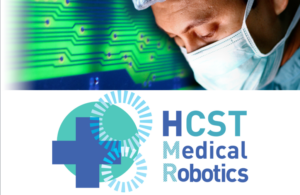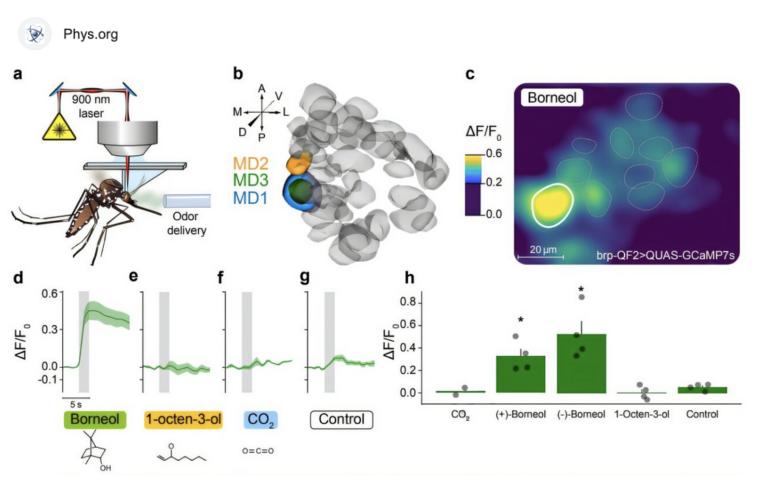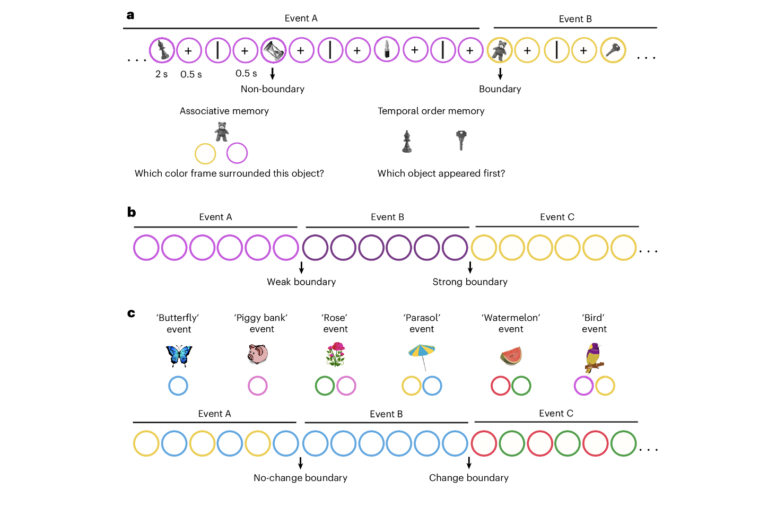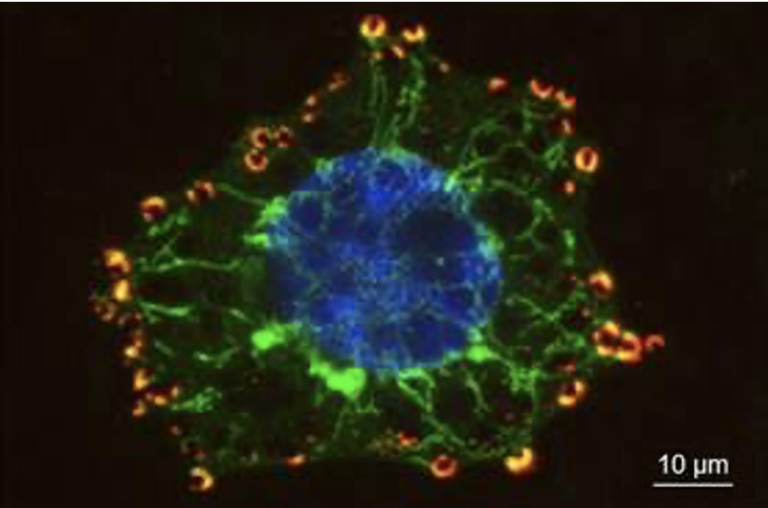HCST Medical Robotics symposium : des experts français rencontrent leurs confrères israéliens le 23 mars, à Tel Aviv

[:fr]Le 23 mars 2015, des experts venus de France et d’Israël se rencontreront à Tel Aviv pour parler des dernières recherches et des perspectives de développement de la robotique appliquée à la médicine. Le symposium « HCST Medical Robotics » encourage le développement de projets franco-israéliens qui pourront être soumis à l’appel à projet du Haut Conseil pour la Coopération Scientifique et Technique. Ce symposium se tiendra au Dan Panorama Hotel de Tel Aviv (salle Ganei Yehudah).
Le Haut Conseil franco-israélien pour la Coopération Scientifique et Technique (HCST) a été créé en 2003. Il a pour objectif de coordonner et de guider la coopération scientifique et technique entre la France et Israël à l’échelle gouvernementale. Le HCST est composé des scientifiques et de représentants des deux pays. Deux scientifiques – un de chaque pays -reconnus mondialement président le HCST. Chaque année, le HCST lance un appel à projets nommé Maimonide sur deux domaines de recherche dont les applications sont d’intérêt sociétal à court ou long termes. En 2016 et 2017, la « robotique médicale » et la « mécanotransduction et la biologie intégrative » sont les deux domaines qui seront mis en lumière.
Afin de lancer l’appel à projets, le Ministère israélien de la Science, l’Ambassade de France, via son bureau de coopération scientifique, et Business France organisent un symposium scientifique et industriel qui aura lieu le 23 mars 2015. Ce symposium rassemblera des scientifiques et des représentants d’industries dans le but de créer des synergies entre les institutions françaises et israéliennes. Ce symposium préparera ces participants à soumettre leurs projets aux appels à projets du HCST et/ou du FIRAD.
La robotique médicale est au cœur des innovations technologiques dans le domaine de la santé du futur. Pendant les dernières décennies, la France et Israël se sont imposés comme des leaders dans ce domaine d’innovation en proposant de nouveaux concepts et procédés pour le diagnostic et le traitement des maladies et également dans la réhabilitation de fonctions motrices notamment. En France, un cœur artificiel a été transplanté avec succès par Alain Carpentier et son équipe, donnant de l’espoir à des centaines de patients. En Israël, un nez artificiel détectant les cancers a été développé par Hossam Haick du Technion. Il faut noter que Hossam Haick et l’INSERM entretiennent de fortes collaborations.
Programme et inscriptions [:en]On 23 March 2015, experts on medical robotics from France and Israel are gathering in Tel Aviv to discuss latest achievements and perspectives regarding this field. The aim of the HCST Medical Robotics symposium is to build bilateral projects that will apply for the High Council for Research and Technology (HCST) Call for Proposal.
The French-Israeli High Council for Science and Technology (HCST) was established in 2003. It aims to coordinate and drive the scientific and technological cooperation between France and Israel at the governmental level. The HCST is comprised of scientists and representatives of both administrations. Two world-wide renowned scientists – one from each country – form the presidency of the HCST. Currently, David Harari (price Israel 2012) and Jules Hoffmann (Nobel Prize of medicine 2012) are the presidents of the HCST. Each year, the HCST launches a call for proposals entitled Maimonides on two field of research of current global interest. In 2016-2017, “Biomedical Robotics” and « Mechano-transduction and Cell Biology » are the two topics that will be highlighted.
To launch the call for proposals, the Israeli Ministry of Science, Technology and Space, together with the French Embassy in Israel and Business France have organized a scientific and industrial symposium to be held in Tel Aviv on 23rd March 2015, at Dan Panorama Hotel Tel Aviv, Ganei Yehudah room. This symposium will gather both scientists and industry representatives to discuss opportunities for future collaborations between France and Israel in the field of medical robotics, in the hope of leading to partnerships between French and Israeli bodies and allow them to apply for the calls for proposals of the HCST and the FIRAD.
Medical Robotics is at the heart of the technological innovations for medical health care of the future. Over the past decade, Israel and France have established themselves as leaders in this innovative field, providing new applications and opportunities to diagnose and treat diseases but also for restoring functions. A successful example of the French research in this field is the experimental artificial heart, developed by Alain Carpentier, which has already been successfully transplanted, giving hope to hundreds of thousands of people. On the Israeli side, there are also flourishing discoveries. I would like to refer to the artificial nose to detect cancer made by Husama Haik from Technion University. A strong cooperation already exists between Husama Haik and INSERM French laboratory.
French Israeli scientific cooperation
The French-Israeli High Council for Science and Technology (HCST) was established in June 2003, it aims to coordinate and drive the scientific and technological cooperation between France and Israel at the governmental level. The HCST is comprised of scientists and representatives of both administrations. Two world-wide renowned scientists – one from each country – form the presidency of the HCST. Currently, currently Professor David Harari (price Israel 2012) and Professor Jules Hoffmann (Nobel Prize of medicine 2012) are the presidents of the HCST.
Each year, the HCST launches a call for proposals entitled Maimonides on two field of research of current global interest in exact and applied sciences, including medicine, physics, biology. The Maimonides call for proposal is the French-Israeli Hubert Curien partnership. The Hubert Curien partnerships are the implemented program from the policy of the French Ministry of foreign Affairs and international Development to support international scientific and technologic exchanges. They are implemented with the support of the French Ministry of National Education and Ministry of national Education, higher Education and Research.
Research projects that respond to the Maimonides call for proposal shall each be supported by a French team and an Israeli team. Every year, six projects are selected, three by theme. Selected projects receive during two years funding from France (via the Ministry of foreign Affairs and international Development and the Ministry of national Education, higher Education and Research) and from Israel (via the Ministry of Science, Technology and Space).
Financial support covers salaries, research equipment and furniture, mobility expenses, and scientific meeting costs. The financial support of the Maimonides program encourages both exchanges of expertise though mobility – especially from young researchers. Especially Post Doc positions are created in the framework of this program. Therefore the Maimonides program offers to the necessary conditions to researcher teams from Israel and France to benefit from each other skills and knowledge.[:]







